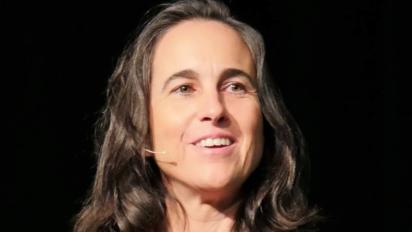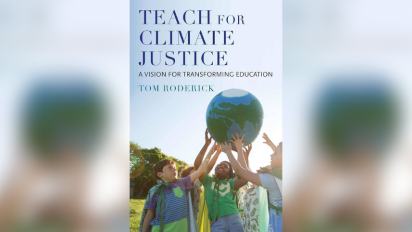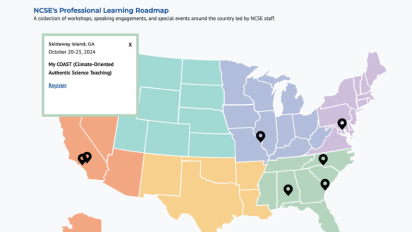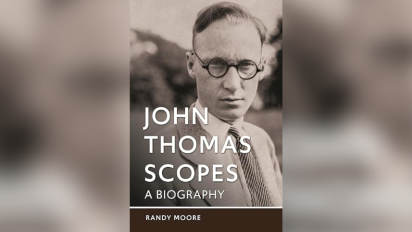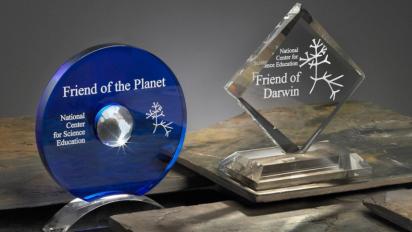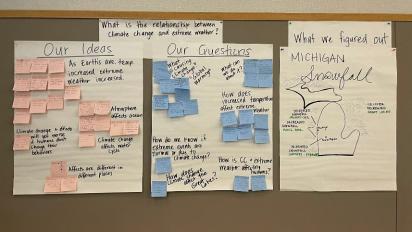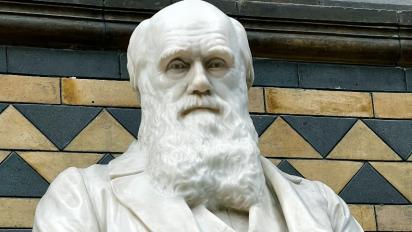Random Samples with Bertha Vazquez
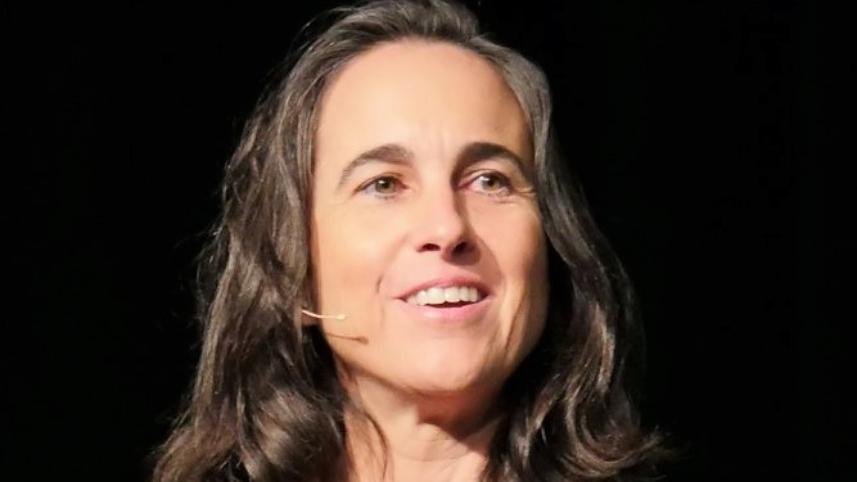
A now-retired middle school science teacher in Miami, Florida, Bertha Vazquez is the education director for the Center for Inquiry (CFI), where she runs the Teacher Institute for Evolutionary Science (TIES), which provides professional development for science teachers, specifically on evolution. She received NCSE’s Friend of Darwin award in 2023 and the National Association of Biology Teachers Evolution Education Award in 2017. The interview has been edited for length and clarity.
Glenn Branch: What sparked your interest in helping fellow educators teach evolution effectively?
Bertha Vazquez: As a biology major, I was always very interested in evolutionary biology, but a meeting at the University of Miami Biology Department in 2013 sparked my interest in helping educators. Richard Dawkins was visiting, and after his talk, a handful of professors and graduate students sat down for lunch. Dawkins invited me to join them. The conversation was about evolution education in schools. One of the professors explained that a local private school had received a single parent complaint about evolution being taught at the school, and the school’s administration banned its teaching as a result. Everyone at the table was appalled. I realized I was “on the inside,” so to speak: the only one at the table in K–12 education. So I began by presenting evolution content and resources to my school’s science department.
One year later, I had the opportunity to meet with Dawkins again. He offered to come and speak to the teachers I had been working with. Miami-Dade County Public Schools invited all the district’s science teachers. It was a great success. A few days later, Dawkins asked me to help him do something similar nationally through his foundation, and TIES was born. Our first workshop took place at the Miami Museum of Science in April 2015. Since then, over 85 teachers (including NCSE Teacher Ambassadors John Mead and Blake Touchet) have since presented over 350 workshops in all 50 US states. Thirteen of those teachers (including Mead and Touchet) published a book with me, On Teaching Evolution, in 2022. Check us out at https://tieseducation.org/.
GB: What is the mission of TIES, and what have been its significant impacts?
BV: TIES is about teachers helping teachers. We give teachers the opportunity to present our resources in their school districts and states, encouraging them to be leaders in their learning communities. Our initial aim was to cover evolution content as opposed to the pedagogy since many middle school science teachers must teach everything from weather fronts to photosynthesis. However, TIES has evolved to provide complete units on evolution with plenty of hands-on and student-centered activities, making it as easy as possible for teachers to cover their state or NGSS standards. For example, one week into the pandemic, we created free middle and high school asynchronous evolution units, including student response sheets, exams, rubrics, and answer keys. Three weeks later, we realized they had been downloaded over 2000 times! We have since added units and resources for grades 3–5.
GB: How has NCSE affected your work as a science teacher and as director of TIES?
BV: My first stop as the newly-contracted TIES director was the NCSE office in Oakland, California. NCSE is, without a doubt, our country’s greatest defender of evolution education. Thanks to your work, we know which states need our resources and workshops the most. NCSE’s resources and outstanding Teacher Ambassador program were models for TIES. NCSE also allowed me to be a guest blogger back in 2015, which really got the ball rolling for us. The fact that NCSE realized the importance of climate education and added it to its agenda is commendable. As a teacher, NCSE was one of the first places I went to look for resources and support. And your work is more important than ever.
GB: Throughout your work, you’ve emphasized middle school evolution education. Why is this so important?
BV: When I did my first deep dive into available evolution resources and professional development opportunities, I found many wonderful resources for high school teachers but not so many for middle school teachers. And again, while a high school teacher may teach only chemistry, a middle school teacher must teach everything: earth, life, physical science, you name it. It’s hard to be a content expert in every science and know where to find appropriate resources. Lord help those poor students who learned about rocks from me!
GB: And in fact you conducted a comparison of the treatment of evolution at the middle school level in state science standards, published in Evolution: Education and Outreach in 2017. What did you discover?
BV: That things were improving. In the early 2000s, many states did not have evolution standards at the middle school level. This is anecdotal, but many college professors are telling me they are finding less and less resistance to the science of evolution in their classrooms. Can it be that students are learning about it sooner?
GB: Now that you’re retired from the classroom, what are you working on?
BV: I’m excited about our two other Center For Inquiry education programs, ScienceSaves and Generations Skeptics. ScienceSaves promotes science appreciation through National Science Appreciation Day, dozens of free teacher resources, and an annual scholarship contest for high school seniors. Every year, hundreds of high school seniors send us 30-second videos of how science has improved their lives or those of somebody they know. ScienceSaves awards the best videos $15,000 in cash scholarships. Generation Skeptics promotes teaching young people to think skeptically. The amount of misinformation our students encounter daily is scary; how can they tell what’s credible and what’s not? Our program is all about checking a claim before believing it or sharing it online. We are offering club stipends for teachers starting school GenSkeps clubs and developing camp programming for museums, private camps, homeschooling groups, congregations, etc.
Speaking of misinformation, NCSE’s other theme is climate change, a topic unfortunately rife with disinformation. And in my opinion, the only thing scarier than all the misinformation out there is climate change itself. That’s why I’m also writing a book on climate education with Corwin Press scheduled for release at the end of this year. It’s tentatively titled What Teachers Want to Know About Climate Change. So yeah, when people ask me how’s retirement, I tell them, “I don’t know.”


